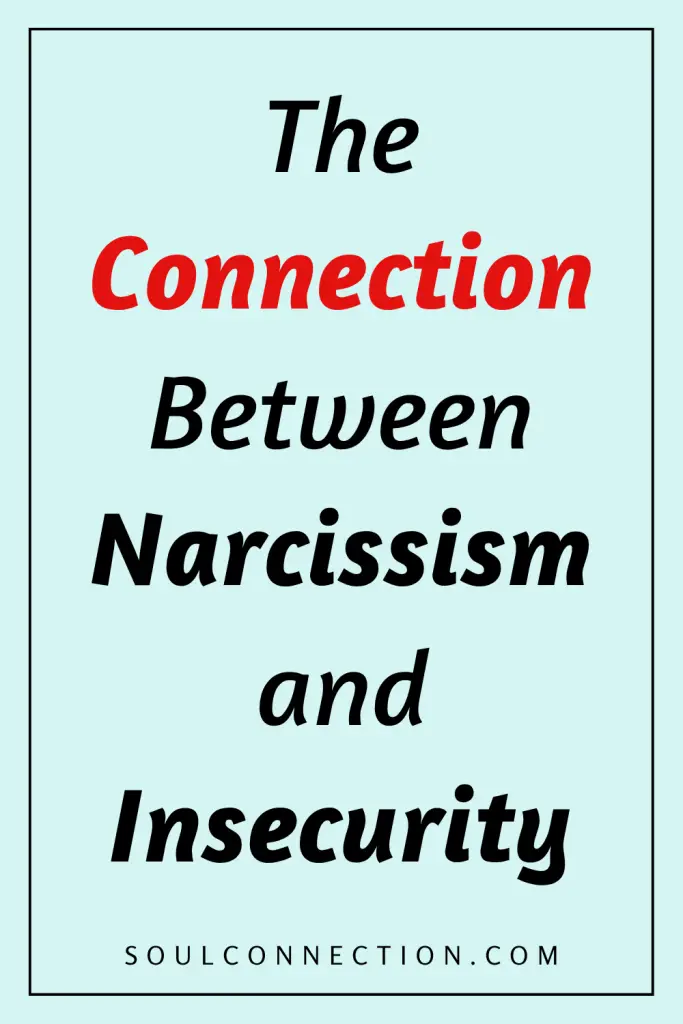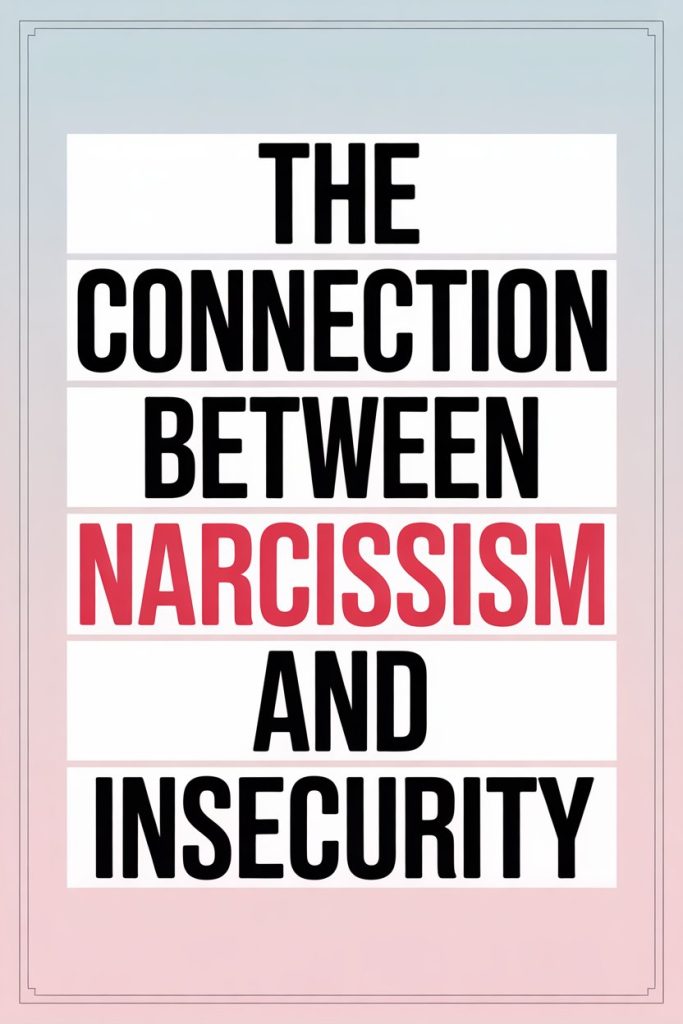Narcissism. Just hearing the word might make you picture someone preening in the mirror, humming “You’re So Vain.” But beneath that glossy surface often lurks a heart full of deep, gnawing insecurity.
The connection between narcissism and insecurity is messy, real, and—let’s be honest—can make relationships feel like a roller coaster designed by a committee of evil geniuses.
Ready to pull back the curtain? You might discover more than a few “aha!” moments about people you know—or, perhaps, yourself.
What Narcissism Really Looks Like
Forget the cartoon villain twirling their mustache while admiring their reflection. Narcissism comes in far more subtle shades. It’s not just about selfie overload or humblebrags.
Narcissism is a personality style built around grandiosity, a need for admiration, and a marked lack of empathy.
But here’s the kicker: beneath all that bravado lurks a shaky sense of self. Narcissistic folks rarely feel as invincible inside as they try to appear.
Grandiosity becomes a shield, not just an accessory. Think of it as putting on a superhero cape to hide the fact your knees are knocking.
The Anatomy of Insecurity
Insecurity isn’t just feeling awkward at a party or fretting about spinach in your teeth. It’s a chronic, sometimes crushing sense of self-doubt.
People carrying insecurity often worry about their worth, their lovability, and whether anyone actually likes them—or if everyone’s just too polite to say otherwise.
For most, insecurity makes people quieter, more self-effacing, or eager to please. For narcissists, that same insecurity takes a left turn and becomes the gas in their “me, me, me” engine.
How Insecurity Fuels Narcissism
Imagine building a house on quicksand. That’s what happens when someone’s self-esteem rests on shaky, insecure foundations.
Instead of working on shoring up the structure, many narcissists slap on some fancy wallpaper and hope nobody notices.
Behind every overblown story, dramatic exit, or “I’m always right” declaration, there’s often a vulnerable ego bracing for impact.
Narcissists crave validation, not just for kicks, but to fill a persistent emptiness that feels bottomless. Compliments, applause, and admiration act like buckets trying to bail out a sinking boat.
The Two Faces of Narcissism: Vulnerable and Grandiose
Not all narcissists are cut from the same cloth. Some are brash and loud, strutting through life like they own the place (grandiose narcissists).
Others are more reserved, sensitive, and even anxious (vulnerable narcissists). Both share one core feature: insecurity.
Grandiose narcissists swagger through life, but get prickly when challenged. Vulnerable narcissists can come across as shy or even victimized, but underneath, they’re just as desperate for reassurance.
It’s a bit like chocolate and vanilla—different flavors, same underlying recipe.
Signs Insecurity Is Driving Narcissistic Behaviors
Ever get the feeling that all the confidence is a bit… forced? Here are some classic tells that insecurity is running the show, even if someone claims the spotlight:
- Fishing for compliments. Every achievement, no matter how minor, is paraded for applause.
- Overreacting to criticism. Even gentle feedback sparks outrage or sulking.
- Comparing themselves constantly. Whether it’s siblings, friends, or the neighbor’s dog, there’s always a competition.
- Holding grudges. The tiniest slight is remembered and cataloged.
- Refusing to apologize. Admitting fault feels like admitting worthlessness.
Spot these patterns? You’re not imagining things. Deep down, these behaviors are reflexes to soothe a shaky sense of self.
The Dance in Relationships
Dating or living with a narcissist is a bit like tiptoeing through a field of emotional landmines. One minute, you’re their hero. The next, you’re the villain who “never appreciates” them.
Partners often notice cycles: love-bombing, then devaluation, followed by cold withdrawal or sudden rage. Each phase is a way for the narcissist to keep their insecurity under wraps and force others to play supporting roles.
It’s exhausting, sure. But it’s also deeply confusing—and can make even the most confident person start to question their own reality.
Why Empathy Often Goes Missing
Empathy requires stepping outside yourself long enough to feel someone else’s emotions. Insecurity, when turned toxic, makes that pretty tough.
Narcissists are so busy shoring up their own fragile egos, there’s little energy left for anyone else’s feelings.
It’s not that they don’t care at all. It’s that their own hurt drowns out everyone else’s pain. Their needs always seem bigger, their wounds always feel deeper.
That’s not an excuse, but it does explain why asking for empathy often feels like shouting into a void.
How to Respond to Narcissistic Insecurity
If you’re dealing with a narcissistic loved one, self-preservation is not selfish—it’s mandatory. Here’s how to keep your own emotional feet dry:
- Set boundaries like your sanity depends on it. Because it does.
- Refuse to take the bait on guilt trips or emotional blackmail.
- Give validation sparingly—encouragement is fine, enabling isn’t.
- Insist on accountability. “I hear you, but you can’t speak to me that way.”
- Seek outside support. A trusted friend or therapist can help keep your compass steady.
Not every narcissist is ready or willing to change, but your own life doesn’t have to become collateral damage.
Is Change Possible for the Insecure Narcissist?
It’s the million-dollar question. Can someone with narcissistic traits learn to be less self-absorbed and more secure?
Sometimes. Growth starts when the narcissist recognizes the link between their insecurity and their behavior—not just blaming everyone else for their woes.
Therapy (especially psychodynamic or schema therapy) can help narcissists develop genuine self-esteem and empathy. But change is rarely fast or easy. It’s a marathon, not a sprint.
Sometimes, sticking with a narcissist who refuses help is like running that marathon with your shoelaces tied together.
Why Self-Awareness Can Be a Game Changer
Self-awareness is the kryptonite of insecurity. When narcissistic folks start to recognize their patterns—how their need for validation drives their reactions—they can begin to untangle the web.
Journaling, honest feedback, and therapy all help. Even small steps—learning to tolerate criticism without falling apart, or letting someone else have the spotlight—can make a massive difference.
For those on the other side of the relationship, don’t hold your breath for overnight transformation. But celebrate progress, no matter how tiny.
How to Protect Your Own Confidence
Being close to a narcissist can chip away at even the healthiest self-esteem. Counteract this erosion by investing in your own self-worth:
- Stay connected to friends who see and value you.
- Pursue hobbies and interests outside the relationship.
- Remind yourself (often!) that you are not responsible for someone else’s self-image.
- Seek out environments where appreciation is mutual, not a one-way street.
Your confidence is precious. Guard it like it’s your nan’s best china.
Shifting the Narrative
Narcissism and insecurity are two sides of the same battered coin.
For those caught in the orbit of a narcissist, it’s easy to forget that the person causing so much chaos is, inside, deeply afraid of not being good enough.
Does that excuse the behavior? Not on your life. But it does offer a window for compassion—even if you choose to love them from a safe distance.
Growth and healing are possible, but only when insecurity stops calling the shots. In the meantime, keep your boundaries firm, your humor handy, and your self-esteem shining.
That’s your best armor, no matter who’s hogging the mirror.


